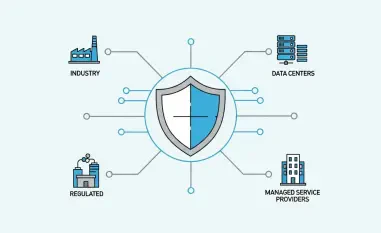In an era where cyber threats loom larger than ever, imagine a major corporation facing a data breach that exposes sensitive customer information, not due to a lack of technical defenses, but because of inadequate policies and untrained staff. This scenario underscores a critical gap in the cybersecurity industry—one that non-technical professionals are uniquely positioned to fill. As digital landscapes expand, the need for strategic thinkers, communicators, and compliance experts has surged, proving that safeguarding assets extends far beyond coding and firewalls. This report delves into the vibrant world of non-technical cybersecurity roles, highlighting their importance, emerging opportunities, and the pathways available for individuals eager to contribute to a safer digital environment.
Understanding the Cybersecurity Landscape
The cybersecurity industry stands as a cornerstone of modern business, protecting digital assets against an ever-growing array of threats. With global cybercrime costs projected to escalate, organizations across sectors are prioritizing robust defense mechanisms. This rapid expansion has transformed cybersecurity into a multifaceted field, where technical expertise is just one piece of the puzzle. Non-technical roles, focusing on strategy, risk assessment, and communication, have gained prominence as essential components of a comprehensive security framework, addressing gaps that technology alone cannot cover.
Beyond the realm of coding, the industry encompasses diverse career paths that leverage skills in analysis and policy-making. Major players like Microsoft, Cisco, and Palo Alto Networks drive innovation, while technological advancements such as AI-driven threat detection redefine how threats are identified and mitigated. Regulatory frameworks, including GDPR and NIST, further shape practices by imposing strict standards that organizations must meet. These elements collectively create a dynamic environment where non-technical professionals play a pivotal role in ensuring compliance and fostering resilience.
A closer look at key industry segments reveals opportunities in areas like governance, risk management, and compliance (GRC), as well as security awareness training. These domains rely heavily on individuals who can interpret regulations, devise strategies, and educate workforces rather than implement technical solutions. As cyber threats evolve, the demand for such expertise continues to rise, positioning non-technical roles as vital to maintaining trust and security in an increasingly digital world.
Emerging Opportunities in Non-Technical Cybersecurity Roles
Key Trends Shaping Non-Technical Careers
The recognition of non-technical roles as indispensable to cybersecurity strategies marks a significant shift in industry priorities. Positions such as compliance officers and security trainers are no longer seen as supplementary but as core to building robust defenses. This trend reflects a broader understanding that preventing breaches often hinges on well-crafted policies and informed employees rather than solely on sophisticated software or hardware solutions.
Emerging cyber threats, from phishing schemes to insider risks, have amplified the need for skills in risk management and policy development. Organizations now seek professionals who can assess vulnerabilities from a strategic standpoint and design frameworks to mitigate them. Additionally, the push for employee training has grown, as human error remains a leading cause of breaches, creating demand for educators who can translate complex security concepts into actionable practices.
Consumer awareness and organizational demands further fuel opportunities for non-technical talent. As clients and stakeholders expect transparency and accountability in data protection, companies are investing in roles that bridge the gap between technical teams and business objectives. This convergence of public expectation and corporate responsibility opens doors for individuals skilled in communication and advocacy, ensuring that security aligns with both legal standards and customer trust.
Market Demand and Growth Projections
Data from recent industry analyses indicates a sharp rise in demand for non-technical cybersecurity roles, with positions like compliance officers and cybersecurity consultants experiencing significant growth. Labor market trends suggest that these roles will see a projected increase of over 15% in openings from this year to 2027, driven by the need for expertise in navigating complex regulatory landscapes. Such statistics highlight the urgency for professionals who can address security from a governance perspective.
Growth forecasts also point to an expanding role for these positions in organizational resilience. Reports estimate that by 2027, nearly one-third of cybersecurity job postings will prioritize non-technical skills, reflecting a shift toward holistic security models. These roles contribute by ensuring adherence to standards, conducting risk assessments, and providing strategic guidance, all of which are critical to preventing and responding to cyber incidents effectively.
Looking ahead, the integration of non-technical expertise into cybersecurity frameworks promises to strengthen defenses against sophisticated attacks. As organizations grapple with evolving threats, the ability to anticipate risks and implement proactive measures through policy and training becomes a competitive advantage. This trajectory underscores the enduring value of non-technical professionals in sustaining a secure digital ecosystem.
Challenges in Pursuing Non-Technical Cybersecurity Careers
Navigating a career in non-technical cybersecurity comes with its share of hurdles, starting with the pervasive misconception that the field is exclusively technical. Many potential candidates overlook these opportunities, assuming that programming knowledge is a prerequisite. This misunderstanding limits awareness of roles that prioritize analytical and interpersonal skills, creating a barrier to entry for diverse talent pools.
Another challenge lies in the necessity for continuous learning to stay abreast of evolving threats and regulatory shifts. Cybersecurity is a dynamic field, where new vulnerabilities and compliance requirements emerge regularly, demanding that professionals adapt swiftly. This constant need for upskilling can be daunting, especially for those transitioning from unrelated backgrounds, requiring dedication and access to relevant resources.
To overcome these obstacles, aspiring individuals can leverage certifications such as CompTIA Security+ or Certified Information Security Manager (CISM) to build credibility and demonstrate competence. Developing transferable skills like effective communication and critical analysis also proves invaluable, enabling professionals to bridge technical and business needs. By seeking mentorship and engaging in industry networks, barriers can be dismantled, paving the way for successful career transitions.
Navigating the Regulatory and Compliance Environment
The regulatory landscape in cybersecurity is a complex web of standards and mandates that organizations must navigate to avoid penalties and maintain trust. Frameworks such as GDPR, NIST, and ISO 27001 set stringent guidelines for data protection and risk management, shaping how businesses operate globally. Understanding these regulations is crucial for non-technical professionals tasked with ensuring adherence and mitigating legal risks.
Compliance-focused roles have become indispensable in this context, as they oversee audits, policy implementation, and reporting to align with industry standards. These positions require a deep grasp of legal requirements and the ability to translate them into actionable strategies, often serving as the liaison between technical teams and regulatory bodies. Their work ensures that security measures are not only effective but also legally sound.
Regulatory changes continuously influence non-technical roles, creating a demand for expertise in interpreting and applying new rules. As governments and industries introduce stricter policies to combat cybercrime, professionals in compliance and governance must stay informed to guide organizations through transitions. This evolving environment highlights the importance of adaptability and specialized knowledge in maintaining a compliant and secure operation.
Future Outlook for Non-Technical Cybersecurity Careers
Looking toward the horizon, non-technical cybersecurity roles are poised for transformation driven by innovations in threat analysis tools and training methodologies. Advanced platforms that simplify risk assessment are empowering professionals to focus on strategic decision-making rather than manual processes. This shift enhances the impact of roles centered on planning and oversight, amplifying their contributions to organizational security.
Potential disruptors, such as automation of routine compliance tasks, may reshape the landscape for managerial and strategic positions. While automation streamlines repetitive duties, it also elevates the need for human judgment in interpreting data and crafting policies. This balance suggests that non-technical professionals will increasingly focus on high-level responsibilities, adapting to tools that augment rather than replace their expertise.
Growth areas like cybersecurity education and consulting are expected to flourish, fueled by global trends in digital transformation and heightened regulatory scrutiny. As businesses expand their online presence, the demand for trainers to educate staff and consultants to offer tailored advice will surge. These domains present promising avenues for non-technical talent to make a lasting impact, addressing both current needs and future challenges in the field.
Final Thoughts and Next Steps
Reflecting on the insights gathered, it becomes evident that non-technical professionals are instrumental in fortifying cybersecurity frameworks during a time of unprecedented digital threats. Their contributions in strategy, compliance, and education prove essential in bridging gaps that technical solutions alone cannot address. The exploration of these roles reveals a field rich with opportunity, challenging the notion that cybersecurity is a purely technical domain.
Moving forward, individuals aspiring to enter this space should consider pursuing certifications like CompTIA Security+ and CISM to establish a strong foundation. Developing skills in analysis, communication, and risk management will further equip them to tackle complex challenges. Engaging with industry communities and seeking mentorship can also provide valuable guidance, opening doors to impactful roles.
As the digital landscape continues to evolve, staying proactive in learning and adaptation remains critical. Exploring emerging areas such as cybersecurity consulting or training offers a chance to shape the future of security practices. With dedication and the right resources, career changers and job seekers alike can seize the rewarding possibilities that non-technical cybersecurity careers present, contributing meaningfully to a safer online world.













